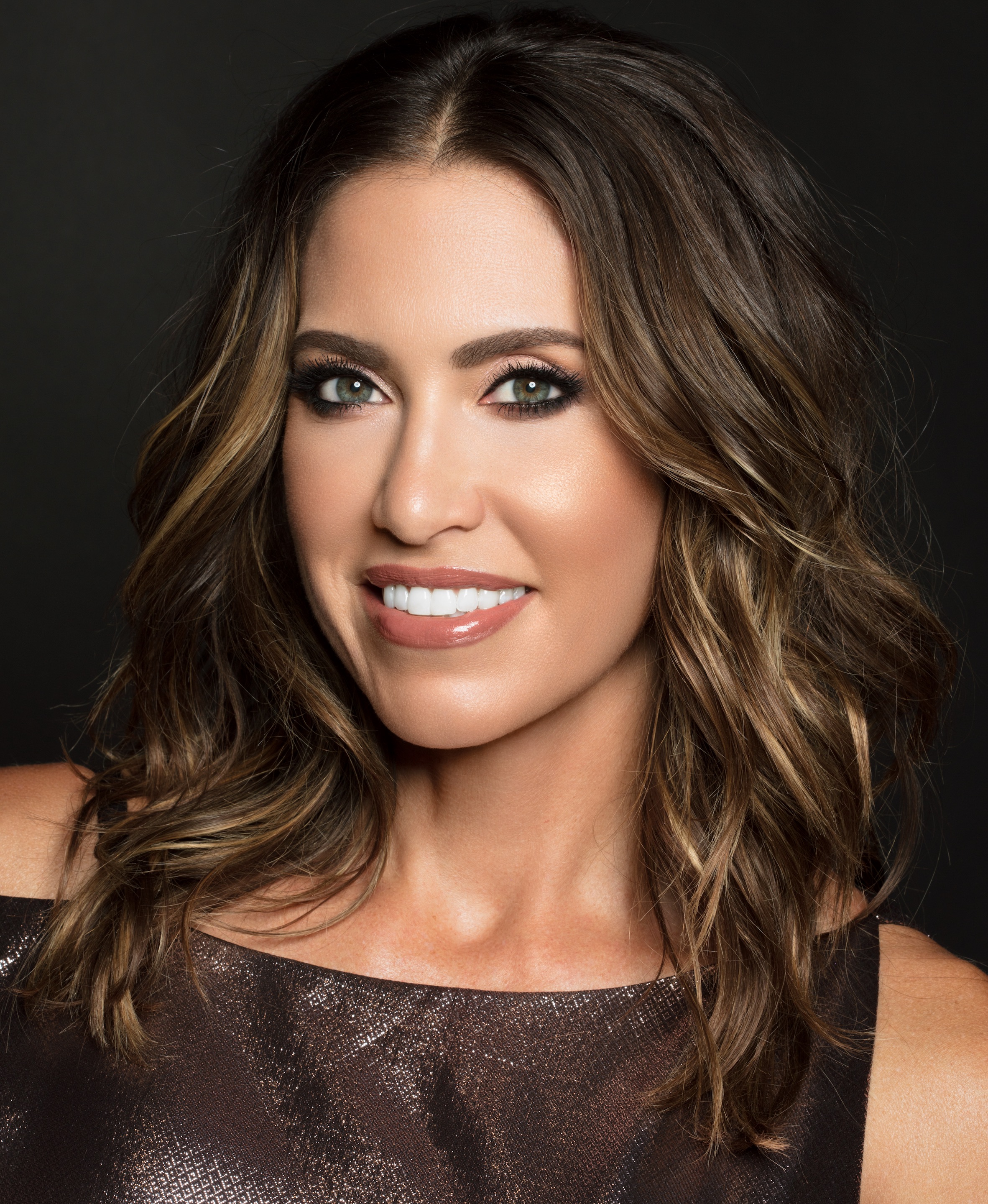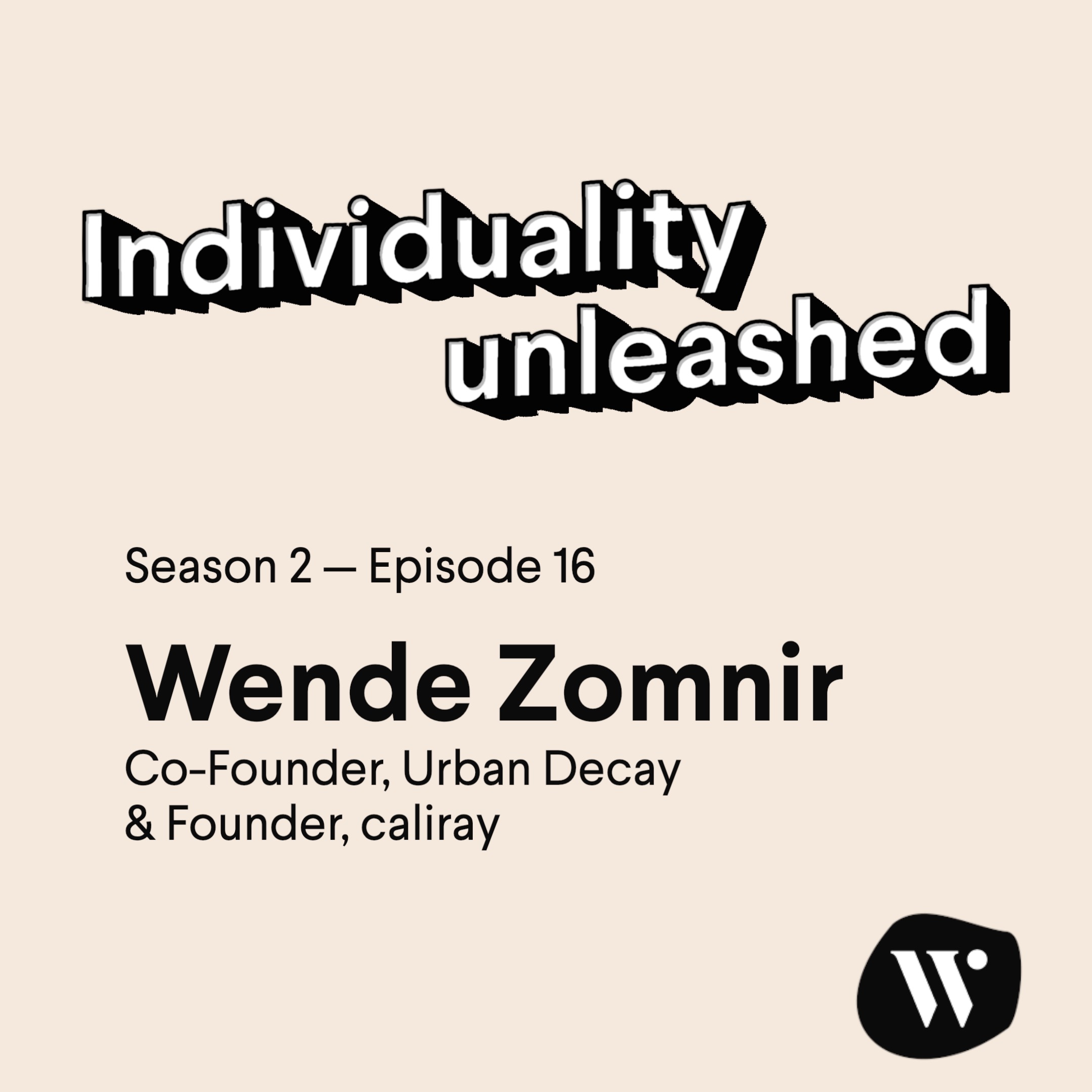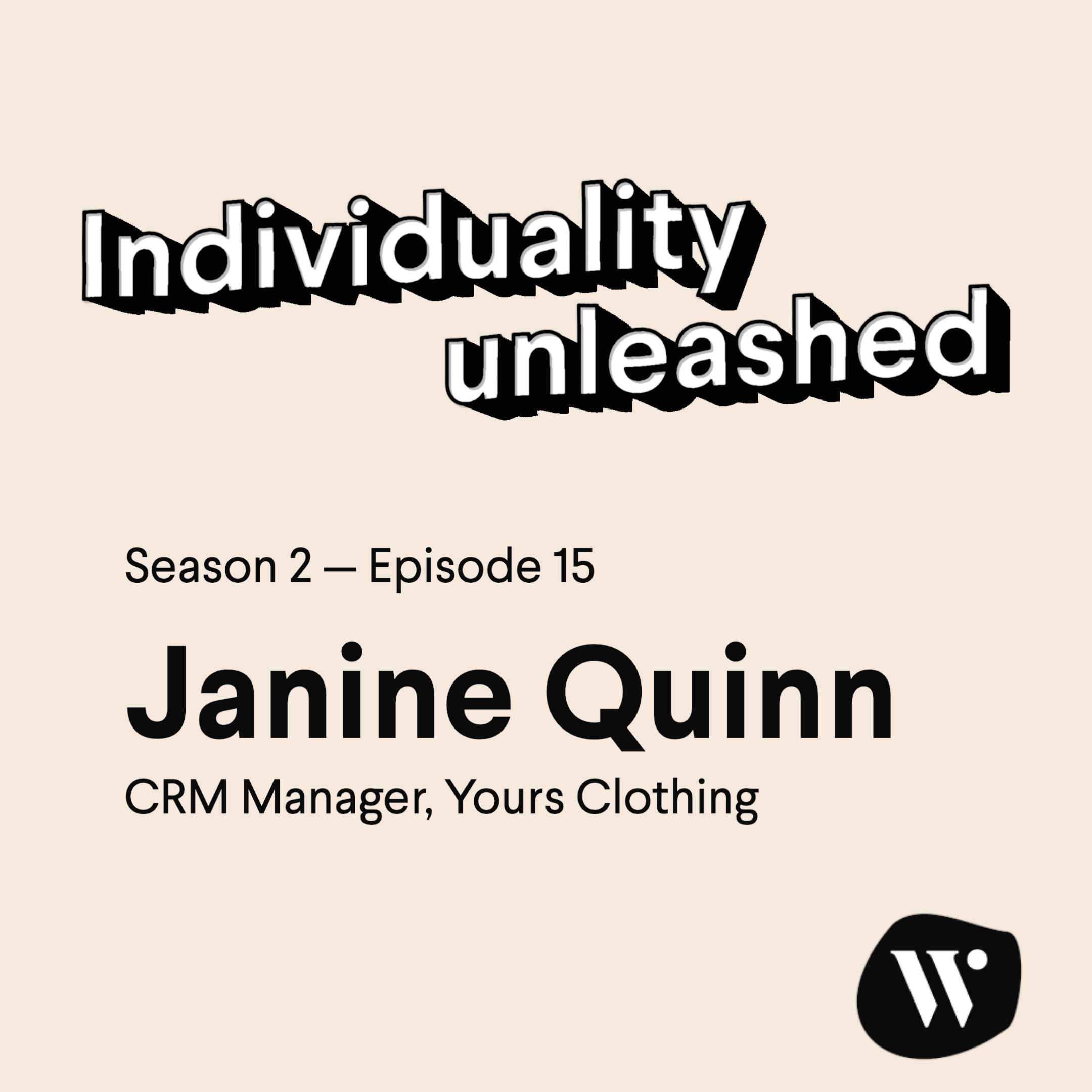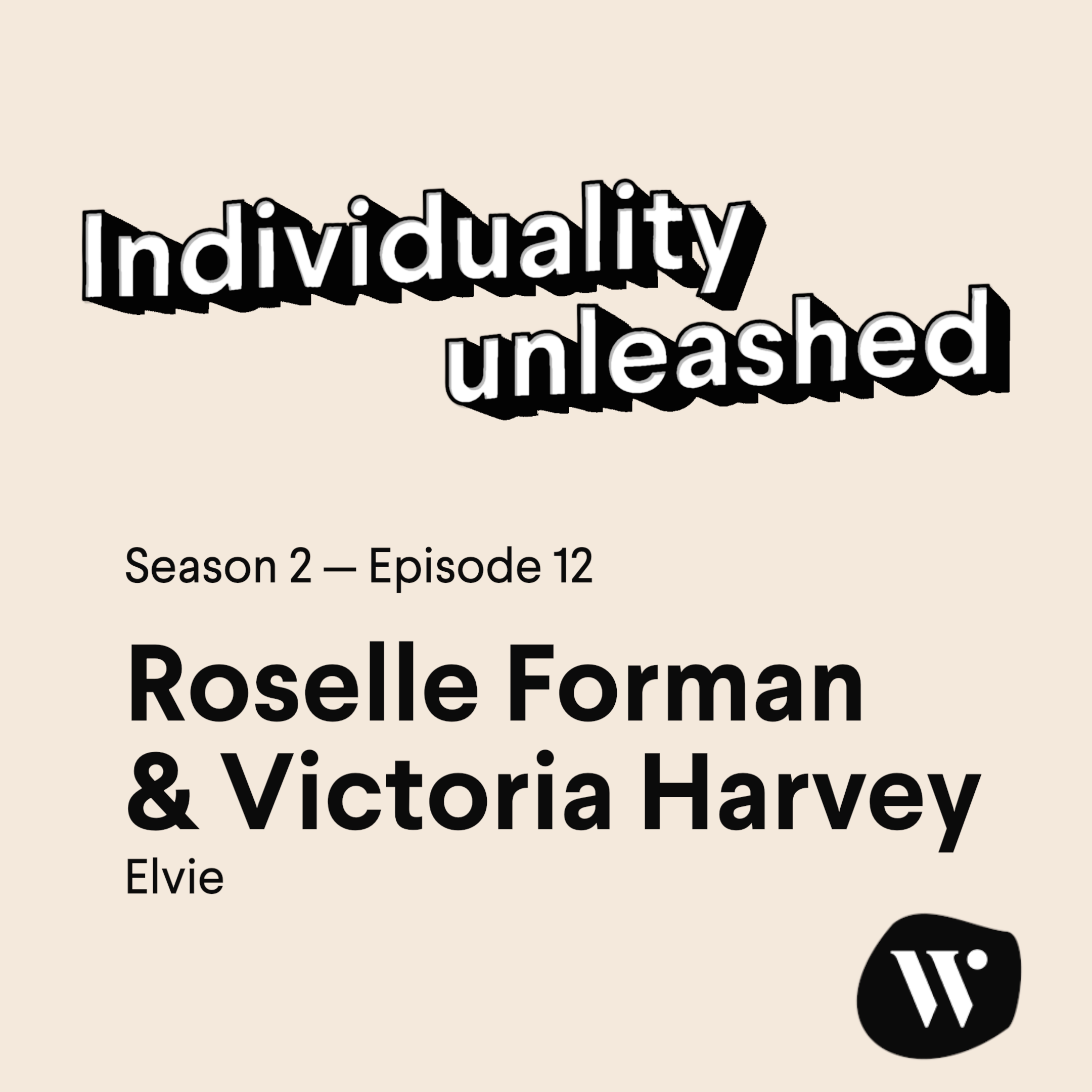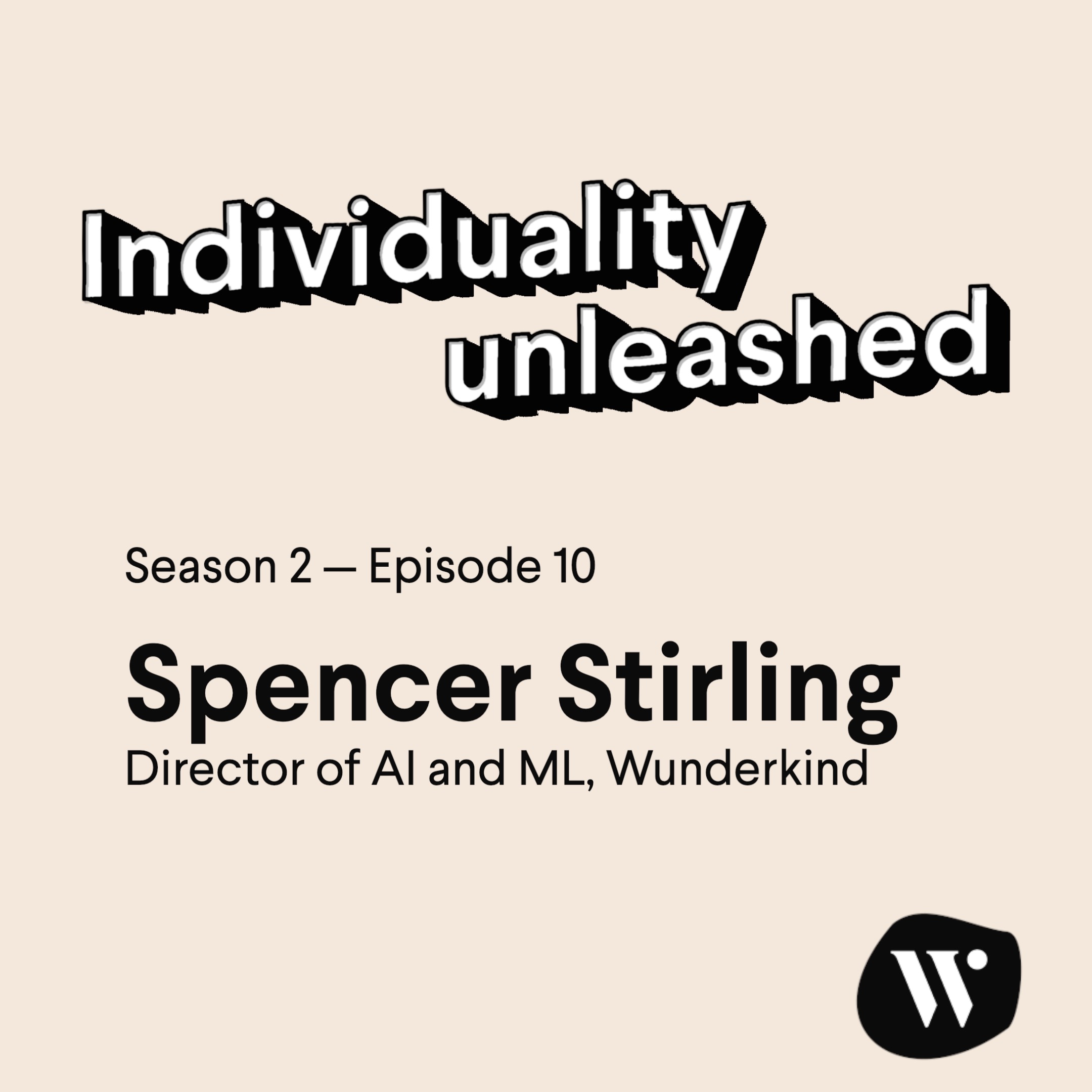Revolutionizing Brand Marketing With Wende Zomnir, Co-Founder of Urban Decay
- 0.5
- 1
- 1.25
- 1.5
- 1.75
- 2
Vern Tremble: How do I look?
Wende Zomnir: You look great. That color's really good on you.
Vern Tremble: Thank you. Thank you.
Wende Zomnir: The deep blue.
Vern Tremble: I dig it. I like our color combination together. I think we have a nice-
Wende Zomnir: Yeah, we are very patriotic.
Vern Tremble: ...patriotic vibe going on.
Wende Zomnir: America.
Vern Tremble: America. We're fixing to go to Piggly Wiggly.
Wende Zomnir: That's right. Oh my God, you know what Piggly Wiggly is?
Vern Tremble: Yes, I do know what Piggly Wiggly is.
Wende Zomnir: Oh my God. My husband thought I was making it up.
Vern Tremble: No. There's still a Piggly Wiggly around the corner from me.
Wende Zomnir: Oh my God. There was a Piggly Wiggly, it turned into a bingo house near my place, but then there's still one in Denton, Texas where my sister lives.
Vern Tremble: I love that. Jay, you should be recording because this is good stuff. Well, before we get started, I want to introduce the podcast. My name is Vern Tremble, Senior Director of Content and Communication here at Wunderkind, and I am joined by Ms. Wende Zomnir.
Wende Zomnir: Oh my god, you said it right. Zomnir.
Vern Tremble: Zomnir. Good. I was nervous before-
Wende Zomnir: I know. It's a tricky name because there's the M and the N together, and it throws people off, but it's really pretty simple.
Vern Tremble: I should have just let myself ride.
Wende Zomnir: Just roll.
Vern Tremble: I should have trusted myself, just like you trusted yourself in developing Urban Decay, and I'm really excited to talk to you today. I know for a lot of the folks out there, they already know what Urban Decay is. I wasn't familiar with Urban Decay.
Wende Zomnir: Well, there's no reason you should be.
Vern Tremble: I don't know.
Wende Zomnir: It's okay.
Vern Tremble: Maybe. But as I was doing my research, I realized that you have been in the game for over 27 years.
Wende Zomnir: Yes.
Vern Tremble: And that is a feat in and of itself. You have so many incredible partners. You can find Urban Decay, the brand, in so many well- known stores and cosmetic stores. I want to spend today talking about your journey. I want to talk about brand and your brand mission. I'd love to talk maybe a little bit about some of your partners and then ultimately giving some advice to other brand marketers and marketers in general of how to do brand correctly.
Wende Zomnir: Let's talk about it.
Vern Tremble: Well first, before we get into, because we're just talking about Piggly Wiggly, so you currently live in Texas?
Wende Zomnir: No, I currently live in California.
Vern Tremble: California.
Wende Zomnir: I'm from Texas.
Vern Tremble: That's what it was.
Wende Zomnir: Yes.
Vern Tremble: Can you give the folks a little intro on yourself, who you are, where have you been?
Wende Zomnir: All right. Well, Wende, one of the founders of Urban Decay and also a founder of a new brand called caliray, and I grew up in Fort Worth, Texas. I actually was lucky enough to go to high school in Brussels, Belgium, believe it or not. Weird, but it was great. Gave me a real insight into the world, and I felt like it was a good opportunity for me as a young person to start studying people. And I think as marketers, that's what we love to do is get into people's minds and understand them, what makes them tick, what motivates them. So I feel like those early years of being dumped into a completely different culture were really good for me and opened my eyes beyond Texas and the United States and everything else. I came back to the US, went to college, and my first job out of college was at the Leo Burnett Company in Chicago, and that was a big ad agency. I worked on some big accounts. I'm old enough where I worked on a tobacco advertising account when I first started, very weirdly. And then I moved on to insurance, and then I got to go to Nintendo and Reebok. And that's really where I started to understand popular culture and made myself an expert in popular culture. I moved out to California to work on a fast food account, and I ended up, through friends, meeting Sandy Lerner, who was the founder of Cisco Systems. And Sandy was like, " Let's start a makeup company." And I was like, " I'm in." I had always wanted to be an entrepreneur. Sandy was one of these inspirational women, and we could do a whole podcast on women that inspire other women, but without her believing we can do this, hey, I broke tech, let's go break beauty, I never had the background or the support to believe that that was something I could do. So I really think that she was one of those pioneer women that paid it forward, and I actually try to do that all the time now and mentor other young women. I'm actually mentoring a young woman from Georgia in the makeup business right now.
Vern Tremble: Oh, awesome.
Wende Zomnir: So really cool little brand called Glosshood. Sienna Brown. I'm just going to give her a little shout- out.
Vern Tremble: Can you spell the name of the brand? Because I want to make sure that we-
Wende Zomnir: It's called Glosshood, G- L- O- S- S- H- O- O- D.
Vern Tremble: Awesome. And we can find that online now.
Wende Zomnir: I think you can find it online on her website now, and hopefully maybe at a retailer's online store soon. We will see.
Vern Tremble: Awesome. All right, Sierra, we're hyping you up. Lots of folks are going to see this. But your story is absolutely incredible, and just some of the things that you were covering and that we were talking about before we started the podcast is the freedom that you have, the spontaneity and the love of spontaneity. Did you find that through your journey a lot of it was either premeditated, or I think I might know the answer to this question, you were just going with the flow?
Wende Zomnir: In some ways I was going with the flow, but in a lot of ways I had really prepared myself. I put in a few years at an ad agency being a junior AE and grinding it out and learning the craft and understanding the discipline behind all of it. So I didn't just jump in and go, " Oh, I'm just going to build a brand." I understood that there was a lot that goes into it that everybody listening to this knows. So I wasn't one of those just lucky like, oh, she just threw it out there and it worked. There was some of that. You take a chance and you throw it out there and you hope. But there was a lot of thought behind it, and it was a moment in time. It was the mid to late'90s. The culture was shifting, things were changing. Beauty was really stagnant, and it was very much marketed to make you feel bad about yourself. And so it was all of these big companies. There were no indie brands when we started. There was no Sephora. Most people in this listening probably can't imagine a world without Sephora. And you went to the department store, and you bought your prestige makeup at department stores. You could go to the drugstore, but the makeup there wasn't good at that time. Now it's pretty good. But it was pretty much versions of pink, beige and red. It was really boring. I always say it was a thin, white, blonde, even- featured woman that was the model. And if you bought the product they were advertising, maybe possibly you could aspire to look more like her. And I just felt like that's so wrong. We're all really beautiful. Beauty should be about self- expression. And I was inspired by that when I was a junior in high school, and I was coming out of church with my family. I told the story yesterday, the priest was like, " You're hiding behind your mask of makeup." And I was like, " This isn't a mask. This is storytelling. This is me showing you who I am." And so I had always viewed makeup as this form of self- expression. I got sent home in eighth grade for wearing too much makeup, and in Fort Worth, Texas that I was really hard to do. So I've always had this passion for it as this means of telling your story. And I felt like other people should feel that. And so that's really what Urban Decay was about. And people ask me about the name, and we kept saying it was urban something, urban something. And someone just was like, " Call it Urban Decay." It's catchy. But I was like, " Oh, is that really the right name for a makeup company?" And then I started thinking about it, and what was our mission? Our mission was to break beauty and have a completely different point of view and give people these tools that were super luxurious, awesome products, but not confined.
Vern Tremble: It's almost like counter- culturalism.
Wende Zomnir: It was totally counterculture at the time. The brand statement I wrote, people cannot believe it. But I was like, the brand statement I wrote in 1996 says, " Urban Decay is makeup for girls and boys who want to show the world who they are and put their own stamp on it." Men wearing makeup in the'90s was out there.
Vern Tremble: Except if you were like Prince, a rock star like Kiss, Gene Simmons and those guys. So you were already-
Wende Zomnir: Or Nikki Sixx, who blessed my baby when I was pregnant, which is a whole nother story we can talk about another time, but weird, in the middle of Times Square.
Vern Tremble: I'm going to have you on four or five podcasts, I feel like.
Wende Zomnir: Oh, I have stories for days.
Vern Tremble: But I think what's also really interesting is when you touch on storytelling, and I think that that crucial element in marketing, as we look at the landscape of marketing today and as we talk to marketers, I think it's something that's fundamentally missing. Good storytelling, storytelling that you're passionate about. We've shifted so far to the right with performance, driving sales, offering deals, measuring and tracking everything that we've lost sight of what motivates us. So I'd love for you to talk about how Urban Decay and now caliray, how they are mission- driven brands and what inspires you and what has inspired you.
Wende Zomnir: I think performance is important, and we all have to tap into it to elevate our sales, but I do think at a brand's core, it's even beyond brand. For me, brands are mission- driven. So the mission for Urban Decay was to give people this form of self- expression, to give them something to tap into that wasn't all about that perfect model. It was about you being beautiful. And the name Urban Decay, if you think about you go to New York, and there's this crumbling brick wall or rusting fire escape, the cool thing about that is it is falling apart. It may not be perfect, but it's really weirdly beautiful, and it has a story to tell, and that is just like every single one of us. We may not fit that conventional mold, but we are all awesomely beautiful. And I said Urban Decay was the brand for weirdos and misfits, and we're all weirdos and misfits. Who doesn't feel that way sometimes?
Vern Tremble: Literally everybody.
Wende Zomnir: Right?
Vern Tremble: Yeah. Anyone that says, " I fit in perfectly," is delusional. But please continue.
Wende Zomnir: So we just felt like the brand was mission- driven. We were all about empowering people to bring who they were to the party. And now if you tried to build a brand on that aspirational ideal, you'd be like, there's no takers. So I feel like mission accomplished in many ways and that any beauty brand that starts today is all about, " It's a tool for self- expression." That is everyone's mantra, and I feel good about that. Oh my gosh, we did it, and we paved the way for all of these indie beauty brands to be successful. And I think that is also really cool because the customer's more segmented. She should have more choices. It shouldn't be about like, oh, there's three or four brands out there. She should be able to tap into this very specific thing that speaks to her. And beauty is a really weird space. In some ways it's packaged goods. It's not unlike your Tide Pods. They work and so you buy it again. And they work and you buy it again. But it's also more like art or fashion in that if you're putting it on your face, it is a tool of self- expression. When you pull that lip gloss or that lipstick out of your bag, you pull that powder out and it's in public or it sits on your vanity, there is an emotional connection to that. So beauty is this weird space that combines the discipline of packaged goods and the art of these soulful experiences that you're having. So it's this really interesting space to be in.
Vern Tremble: I love that a lot. So I don't wear makeup, but I do have a skincare routine. And it's not something that I had done earlier on in my life, but as I'm getting older, I'm like, " I want to take care of my skin." But I find myself being drawn to brands and trying out different brands for skincare that are mission- driven, that are sustainable, that are aligned with my core values. So that very much is a part of making a purchasing decision.
Wende Zomnir: Right. Well, that's great that it is because my new brand, caliray, the space I saw in beauty was we're doing all of this single- use plastic, and I was actually out surfing in a pretty remote place with my family, and I decided to take a break. I paddle my board to the beach. I sit down and it looks like this beautiful beach, but I look in towards the interior of this uninhabited island, and it is filled with plastic trash that is washed up. And I started thinking about how really all of this plastic is a problem, and beauty is a big contributor. And I created this thing called the Naked Palette, which most women have in their makeup drawer. And I started thinking about how many Naked Palettes are in these landfills?
Vern Tremble: What's a Naked Pallette?
Wende Zomnir: A Naked Palette's this 12- pan neutral eyeshadow palette. I always say it made your makeup drawer. It was everyone's go- to palette. And Urban Decay still sells them today. So it's just this very user- friendly, everyone loves it, just throw it in your bag, you can create a bunch of different looks with it.
Vern Tremble: I think I've seen that in my mom's purse.
Wende Zomnir: Oh, your mom, your sister has one. You know someone that has one.
Vern Tremble: Gotcha, gotcha.
Wende Zomnir: So I just started thinking about all the stuff we were putting into landfills, and I really wanted to create a brand with a new mission, and the mission is sustainability. And interestingly in beauty, what I'm finding is that mission is really important just like it was with Urban, but ultimately you have to talk about the product first. So again, you're down to performance versus brand. Even within the brand itself, above and beyond your marketing, inside the brand, you have to balance performance and balance the mission.
Vern Tremble: That's incredible. That's incredible. How have you seen yourself, as a person, evolve alongside your brands, starting all the way back in what,'97?
Vern Tremble: '96. Make sure you have that year, '96all
Vern Tremble: the way to '23.
Wende Zomnir: I was 12 when I started, right?
Vern Tremble: That's exactly right.
Wende Zomnir: That's right. I've evolved a lot. I felt like I was the mentee and now I'm the mentor in many ways in this bigger picture. In some ways things haven't changed. I'm still hauling boxes into the office. When the boxes arrive-
Vern Tremble: I dig that.
Wende Zomnir: So there's still grunt work to be done when you're an entrepreneur. There was an evolution for a while with Urban, once we got it to a size, I was in very much founder mode. And I was traveling a lot, I had to be a lot of places, and I love getting granular with the product. To me, the product is everything and how people are going to experience it, and I want to have my hands in it and touch it and be really the driving force behind creating it. So in order to do that, I had to step out of that founder role and get back into entrepreneur role. So that's part of why I wanted to start caliray as well. Above and beyond the sustainability mission was I just personally love to get my hands dirty.
Vern Tremble: I love that. And that's actually a sentiment that should be reflected across other marketers, specifically brand marketers that are aligning themselves with performance. When you're thinking about your brand, you have to shift your mindset back to an entrepreneurial spirit in order to innovate and in order to have your pulse on the zeitgeist of culture to be like, " Am I a fuddy- duddy dead brand, or am I keeping up with the times?" And the fact that you're going to the office and lifting up some boxes, I've seen your guns.
Wende Zomnir: Oh, thanks.
Vern Tremble: You're yoked in a good way.
Wende Zomnir: Aw, thank you.
Vern Tremble: But I love that. And what would you say to marketers that feel lost in storytelling, in reclaiming that entrepreneurial spirit? What should they do to rediscover that?
Wende Zomnir: I think sometimes it's hard. When you have a nice budget, sometimes it's easy to just go, " Oh, well, I'm going to throw money at that and throw money at that and throw money at that and throw money at that." And I felt like yesterday I was on a panel with Jason from Tushy, and I really loved listening to some of the really innovative things that they were doing. Their Butt- Con exhibit, their funeral for a tree. I was super inspired by him talking about these really innovative ways they created noise and attention without a lot of budget. And we tried to do the same thing. We partnered with a swimsuit company and sponsored a bunch of XD1 volleyball players to play in the Manhattan Beach 6- Man, and created a lot of content around that. And so I think there's things you can do, and I think you have to pretend you don't have any money sometimes and go, " If I didn't have any money, what would I do?" And I think it helps you get out of the box, because I think it's really easy to just go, " Well, here's my meta budget and here's this and here's that." And I'm not saying don't spend that money. I'm saying just pretend you don't have any of that. What would you do? And I think it might help marketers think outside the box a little bit.
Vern Tremble: I love that.
Wende Zomnir: I also don't know that much about AI, and I do think there's some crazy weird opportunities there, but I haven't figured it out yet.
Vern Tremble: We're going to figure out. You and I, we'll stick close, and then as I'm learning, I'll send you information.
Wende Zomnir: Send me info, please.
Vern Tremble: We're using AI today. Even my content team, we're using tools like Jasper AI and content creation and ad creative tools, and it's mainly based around efficiency. But it really starts with storytelling, understanding your brand in order to create derivative content and creative elements that expand your brand. But you should never use it as a tool to define your brand, because then you'll get garbage.
Wende Zomnir: You'll get a machine- made brand.
Vern Tremble: Exactly right. And nobody-
Wende Zomnir: And we all need a brand with soul and purpose.
Vern Tremble: Exactly right, exactly right. And then I also love your point around having a deliberate scarcity mindset as a barometer for how you should be spending money or innovating. For instance, our podcast set- up, but we actually had a limited budget even with the set that we designed before we had a larger budget. And we were going to go all out and do all these things, but then the budget was cut a little bit, and then we really had to get creative and think of what's a clean, sleek, unique way that we can tell our brand story and make this space look cool for the conference and for podcasts? And we ended up coming up with something absolutely spectacular.
Wende Zomnir: And maybe it was probably better than what you originally envisioned.
Vern Tremble: Yeah, I think so. We were trying to do way too much. So you mentioned also... I'll start here. Urban Decay is, from what I'm researching and from the conversations that we're having, it's a part of culture, of mainstream culture. And a part of being a part of mainstream culture is the partnerships that you establish and the industries and the folks and the influencers that you pull into your vision and your mission as that train is moving further and closer and closer and closer to the ever- growing mission. Can you talk a little bit about some of your brand partners and some of the influencers? We can take both of those separately.
Wende Zomnir: So in terms of partnerships, I actually often give a talk on how partnership is so important when you're a brand. There's a lot of great D2C brands. I get that. But for me, I work with retailers, and my partner right now with caliray is Sephora. And what's so great about that is they really are awesome marketers and they understand the balance of performance and brand. And so we're not on sale all the time. They're not always discounting in the store. There's specific moments that are planned that people anticipate. We can anticipate as a brand to amplify them, and then we can anticipate when we might get spikes and we might have slight lows. And so that partnership and that back- and- forth and the sharing of information so that we can amplify each other is so important. They give us a heads- up, " Hey, we're going to be talking a lot about eye." And so we can plan to be talking about that same thing.
Vern Tremble: Oh, I see.
Wende Zomnir: So that we're all building on each other. And the same thing with influencer. They have an influencer team that we can tap into. We bring our own influencers we drive to Sephora. So the partnership there has just been really crucial in building both my brands, both Urban Decay and caliray.
Vern Tremble: That's phenomenal. And what I'd also like to just delve even deeper into, not only the partnerships that you have with Sephora and businesses, but also your ambassadors, the individuals that you have leveraged to spread the word about your brands.
Wende Zomnir: So it was really different with Urban Decay and with caliray because with Urban Decay, we had some bigger budgets. And so my first partnership, big celebrity partnership was with Gwen Stefani. That was really exciting for me. I was a Gwen fan. We started together. Her band was coming up when we were starting Urban Decay, so it was a real thrill for me to work with her on that project. And we still text each other to this day. She's just a lovely person, and she has a brand now too, which is really cool.
Vern Tremble: Please tell her I said, " What's up?"
Wende Zomnir: I will.
Vern Tremble: I love one Gwen Stefani.
Wende Zomnir: I will tell her you said, " What's up?" And then we had Ruby Rose for a while. I think one of the coolest things we did as a brand, and she actually acknowledged it on stage. She came and did a private show for us for a launch, our Naked Honey Palette, and it was Lizzo. And she stood on stage and she said, " No other brand would have hired someone that looks like me to be a spokesperson for a makeup company." And that was five years ago, six years ago, and now it's totally normal. So it's like we were really changing the culture and how people perceive beauty from the beginning. So I know there's controversy with her now, but I think it was really the right thing to be doing. And so with caliray, we choose brand ambassadors that are across all spectrums of types of influencers. Some are that clean girl look, some are a little more down and dirty, some are no makeup girls, some are sustainability people. So we just try to get just a big variety of points of view, and that's really how we do our influencer selection.
Vern Tremble: I love that. And what's so unique about what you're doing and you're doing so well is that although it runs the gamut of all of the types and the personas that are attracted to your brand, you still find a way to be authentic to Urban Decay and to caliray. How do you do that? Because you can serve everyone, but you can't, but you are.
Wende Zomnir: You can't. But we showed a video yesterday at the talk, and it was an influencer, and they were really different than you would imagine the caliray, laidback California dream influencer, but their video was one of our top- performing videos. And so you just can't tell what's going to drive people. I think what it comes down to though, Vern, is the product. Is the product a great product? And if you're selling a great product, then lots of different kinds of people can tap into it. And don't pigeonhole yourself. There are so many sliced and diced segments now, but I think that there's room for brands to appeal across segments, and it's just about tapping into those different subcultures.
Vern Tremble: I dig that. At Wunderkind, we're big into the name of the podcast, Individuality Unleashed, so we're big into inclusivity, to unleashing and showcasing individuality. What are some things that inspire your individuality? How would you describe your individualism?
Wende Zomnir: Well, I've always been about that. I never wanted to fit the mold. We can go back to church again. I wanted to be the girl up on stage helping out, and they were like, " No, no, no, you're a girl. Girls don't do that." And so I feel like that was a moment when I was like, " What?" And so I'm older than you. There were more restrictions on girls back in the'80s when I was growing up, but I feel like that was the start of my individuality journey. I always liked to dress a little different, and when black nail polish came out, I was the first girl in line to get it. I was always into really weird, different things. And so I've just always been on that individuality journey, and I think it's flowed through my brands as well.
Vern Tremble: I dig that. I remember in school, I'm 6'7", so I already stand out already.
Wende Zomnir: You stand out.
Vern Tremble: I stand out already, but I was totally into that. I remember buying a pair of turtle shell glasses when no one was wearing those. And I got teased for them. I don't know who would want tease me, but they did. I'm like, I don't care. I dig these a lot. And then two or three years later, everyone was wearing turtle shell glasses.
Wende Zomnir: I'm with you. I'm 5'11", so I'm not 6'7", but I'm tall for a lady person, and my last name starts with a Z, and I'm like, I was always weird.
Vern Tremble: Wende with an E.
Wende Zomnir: Wende with an E.
Vern Tremble: Stand out. Why blend in? Why do that?
Wende Zomnir: No.
Vern Tremble: I don't subscribe to that.
Wende Zomnir: No.
Vern Tremble: Let's stick out like sore thumbs.
Wende Zomnir: Yeah.
Vern Tremble: Now, before we wrap up, what's really important to get across to our audiences, for me at least today, is to really help them to understand the importance of not resting on their laurels, refocusing your energy around understanding your brand, effectively communicating your brand, infusing that into your performance marketing as opposed to performance marketing first.
Wende Zomnir: So I love that you said no resting on your laurels. It was a big mantra for me at Urban, because what I had observed was brands come and go, and the brands that don't evolve don't stay around. And so my whole thing was, " Hey, if we want to be a brand long- term for the ages, we have to continually evolve." And in order to continually evolve, you can't just reinvent. You have to have a really clear definition of who you are. And I know it's been said a bazillion times, but that brand DNA, those key pillars that your brand stands for. And then you have to modernize those and continually don't rest on your laurels about those. But hey, what does that look like right now? What is that going to look like three years from now? And so you evolve the brand, but the core of the brand is solid and strong. It's like who you are as a person is solid and strong, but hey, tortoise shell glasses, you're into them, you're out of them. You're moving on, but it's still you. And so I think that it's really important to be looking at your brand that way in addition to debuting your performance marketing, because number one, your performance marketing needs to evolve too. What were you calling it, brand performance?
Vern Tremble: Brand performance, yeah.
Wende Zomnir: And your brand needs to stay relevant. And if you are just doing performance marketing, how's your brand going to stay relevant? If you don't know and your brand doesn't know who it is at its deepest core, and then you're continually moving the brand forward, and then that performance can follow the brand and what it looks like.
Vern Tremble: I dig that. I dig that. I think that's great. Well, Wende, it's been an absolute pleasure having you here on-
Wende Zomnir: Well, I'm so glad we just did it spontaneously.
Vern Tremble: We just met yesterday.
Wende Zomnir: We just met.
Vern Tremble: And then I went down the rabbit hole. I got on the internet last night after we met, and I'm like, oh my God.
Wende Zomnir: There's some pictures of me from the'90s that are special.
Vern Tremble: And they're wonderful. But then not only those pictures, but also just your career and what you've achieved, completely blown away. And now I'm a huge fan, and I wish I had known you earlier because now-
Wende Zomnir: Well, you got a primer in your room here. You got a primer.
Vern Tremble: How do I use a primer? What is that?
Wende Zomnir: So this primer, it's called So Blown, and you put it on. It blows out all your pores, any fine lines. But the good thing about this one is it's hydrating, it's got collagen peptides. So you being a skincare guy, you can just pop it on. You'll look a little more blurred out, a little more finished. When you get up on stage today, you'll just be a little more pulled together. So it's almost like clear makeup, but it's not makeup, because it's good for your skin.
Vern Tremble: I dig it.
Wende Zomnir: And it smells like a vacation.
Vern Tremble: I dig that.
Wende Zomnir: When you put it on.
Vern Tremble: Thank you very much for the gift.
Wende Zomnir: Well, I hope you love it.
Vern Tremble: And I'm going to message you, and I'm going to send you, "How do I look?"
Wende Zomnir: You know what? Women love it. They usually wear it under and then put a little skin tint or makeup on top, but I give it to my husband and my boys. And who loves it is men who don't have hair on the top of their head. It takes that, smooths everything out, takes the shine down. It's good for everywhere.
Vern Tremble: Do you market it that way?
Wende Zomnir: No.
Vern Tremble: You should.
Wende Zomnir: I know. It's fun. Beauty, there's the main marketing messaging and what the product's for, and then there's the hacks. Because it's so big on social media, you can make a whole career of like, " We're going to launch this product, and this is what it is." And then you basically then sideline all the hacks of what to do with it. I also use it as an eyeliner corrector. So I'll put a little on a brush and if my winged liner isn't straight, I can just use that and it cleans up the winged liner really beautifully.
Vern Tremble: I love that.
Wende Zomnir: So lots of hacks with the So Blown primer.
Vern Tremble: You're inspiring me because that sounds like a whole campaign in and of itself, taking your product and creating a chart of all the hacks that you could-
Wende Zomnir: Oh, hacks, people love a good hack.
Vern Tremble: Oh, I dig that. See now, like I said, I don't wear makeup, but now I'm curious to see all the unique ways-
Wende Zomnir: Well, just you wearing it as a man who doesn't wear makeup is a hack in many ways. You have lovely skin. You clearly do take care of it, but you're going to put a little on. You just need the tiniest amount, and start from your nose out, and you're going to be like, " Oh my God, look how good this looks."
Vern Tremble: I can't even begin to describe, to tell you how giddy I am that I'm getting a personal consultation from Wende Zomnir.
Wende Zomnir: I know. I usually end up going places, and I'll talk about marketing and branding or big picture stuff. And then people in the room are like, " But can you tell me how to get your eyeliner like that?" or" How do I put on mascara?" I always end up giving a makeup lesson as well.
Vern Tremble: I think that's great. One of your many, many multiple talents. Wende, again, thank you so much.
Wende Zomnir: Thanks for having me, Vern.
Vern Tremble: Absolutely. I hope to have you again soon.
Wende Zomnir: Yeah, let's do it again.
Vern Tremble: Absolutely. And again, folks, thank you for joining. Thank you for listening. We'll see you again on another episode of Individuality Unleashed.
DESCRIPTION
Meet Wende Zomnir, co-founder of groundbreaking makeup company Urban Decay and founder of caliray, a makeup brand made of clean formulas, dirty minds, and sexy sustainability . You'll be captivated by Wende's rollercoaster journey from her Texas roots and European upbringing, to establishing herself as a marketing maven in Chicago and eventually revolutionizing the beauty industry by challenging the status quo with Urban Decay. Get ready for Wende's unique insights on transitioning from founder to entrepreneur and how limited resources can actually fuel innovative thinking. Be prepared to question the role of AI in content creation – could it potentially strip brands of their soul and purpose? Wende doesn't shy away from these tough questions, always keeping sight of the importance of strategic partnerships and influencers in making a brand part of the cultural zeitgeist. For all aspiring brand marketers out there, Wende's approach to brand partnerships and influencers is a masterclass in itself, with Urban Decay and caliray as case studies of success. From her inaugural celebrity partnership with Gwen Stefani to a diverse array of influencers for caliray, Wende spotlights how quality, individuality, and inclusivity can be powerful marketing tools. And for those seeking personal insights, Wende shares about her consultation services - a treasure trove of makeup lessons and branding advice. So, lend your ears to this riveting chat with Wende Zomnir, a true titan in the realm of brand marketing.
Today's Host
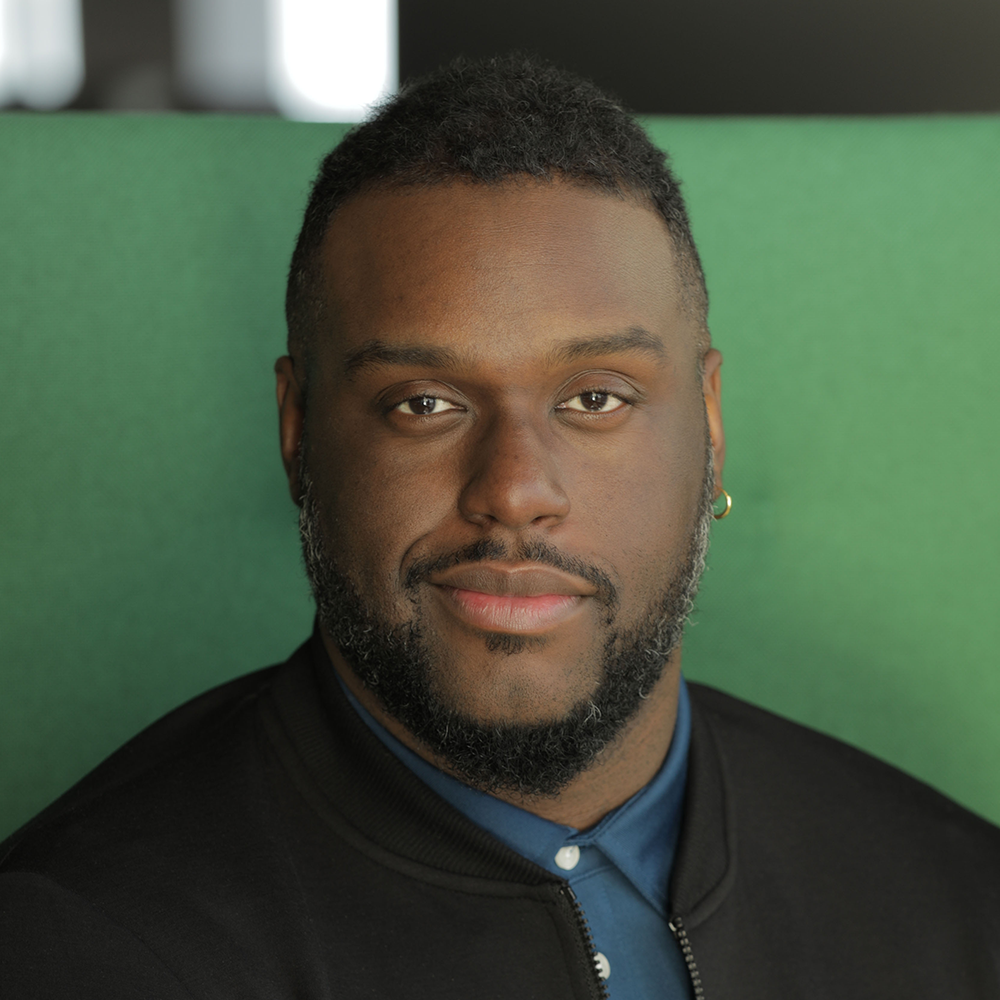
Vern Tremble
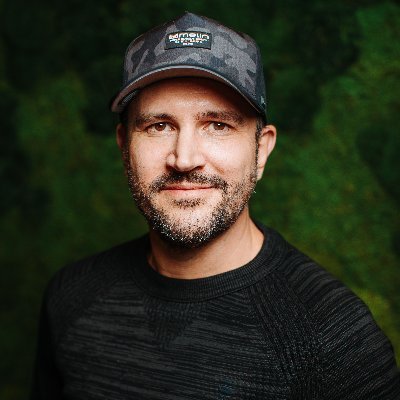
Richard Jones
Today's Guests
